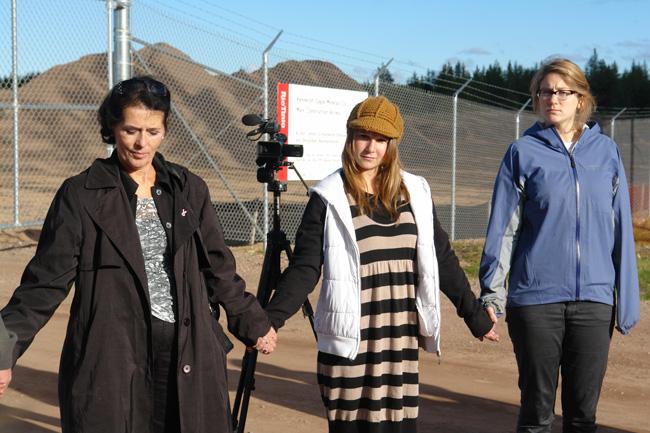Grassroots community efforts can sometimes be the turning point in battling big corporations over environmental and safety issues, said Lois Gibbs, the executive director of the Center for Health, Environment and Justice (CHEJ).
Gibbs spoke at NMU in Jamrich 102 on Friday, Oct. 15. Her presentation, “From the Love Canal to Michigan,” was sponsored by Students for Sustainable Living, among other groups, and focused on environmental action on a local level, with special regard to the controversial Kennecott Eagle Rock Mining Project.

Gibbs, a Nobel Peace Prize nominee, has appeared on television shows such as 20/20, Good Morning America, and The Oprah Winfrey Show to present her strategies on local environmental action and to share her personal story on how she became involved in environmental activism through her experiences with the historic environmental catastrophe of Love Canal.
Gibbs did not originally intend to be an environmental activist. Her life’s aspiration was to start a family in her hometown of Niagra Falls, NY.
“What I wanted to be was a mom. I wanted to have lots of babies,” she said.
After getting married and having her first child in the ‘70s, Gibbs became concerned when her son Michael was diagnosed with asthma and had dangerous bouts with pneumonia on a weekly basis. Gibbs and others began noticing an increasing trend of birth defects in newborns in the town, and when her second child was diagnosed with leukemia, Gibbs knew something was wrong. Gibbs found out that 56 percent of children in Niagra Falls were born with severe birth defects.
“I knew that if I didn’t stand up and if I didn’t do something that my children were going to die,” she said.
Little known to members of the community, the town of Niagra Falls had been built on a filled-in canal called the Love Canal that contained 20,000 tons of toxic waste. The dump contained traces of dioxin, the most toxic chemical known to man. The EPA had originally approved containment facilities for the toxic waste and deemed the area safe to live, but, despite precautionary measures, the waste leaked into the groundwater supply. Gibbs and the community fought with the New York State and national governments through local political efforts and managed to secure evacuation for the town’s 833 families who were affected by the environmental hazards of the area.
“To win these battles, you need to fight with politics,” Gibbs said.
Gibbs found success in her personal struggle by rallying support door to door and pressuring elected officials with bad publicity.
When Gibbs realized that no local, state or national organization existed to advise environmental community action groups, she went on to found the CHEJ to organize communities that are in situations similar to her own and help promote a change in environmental policies.
“Whatever you’re fighting for, there are probably a lot of people out there who are with you. A lot of people who would take a stand, but they just don’t know what to do,” Gibbs said.
The struggle of Love Canal is similar to the struggle that environmental organizations in the UP are facing with the Kennecott Eagle Rock Mining project, Gibbs said. She made it clear that she is not against the mine specifically, but she is worried that information presented to the community about the mine’s safety could possibly be misleading.
“Why is it that the state of Michigan hasn’t done a study to check and make sure that in fact the data that the mining company is (correct)? I’m not anti-mine, I’m anti-poison. Maybe it is a safe mine, but frankly, we don’t know,” she said.
Gibbs was also invited to speak at Marquette Senior High School about her victory at the Love Canal, but when she was asked not to speak about the Kennecott mine, she declined the opportunity to speak, said Gibbs.
Kathryn O’Donnell, a member of Students for Sustainable Living, said the speech was informative, and may lend guidance for organizations who are against the Kennecott Mine in the UP.
“She really gave a lot of direction and examples on good plans that may work,” O’Donnell said.
The message Gibbs said was the most important was that anyone can be effective in creating change if they only stand up for themselves and fight for it.
“I am just a housewife. We were able to bring the president of the U.S. to stand in our high school auditorium to give us what we wanted. It was because we had a plan and a strategy,” Gibbs said.






















